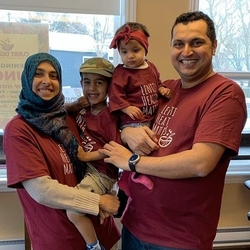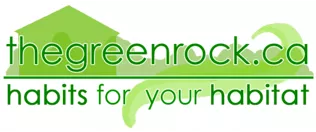St. John's Status of Women
Diversity, Equity, Inclusion Training session for workplace education and information - Looks Like Social Enteprise
St. John's Status of Women - supporting DEI learning, and earning
Fostering a workplace that prioritizes diversity, nurtures fairness, and embraces inclusivity is a matter of social ethics and also a strategic necessity.
The St. John's Status of Women Council is on the task.
Since its inception in 1972, the St. John’s Status of Women Council/Women’s Centre has been at the forefront of advocating for equality and justice, establishing a welcoming and inclusive environment for women and those of diverse gender identities in the St. John’s region.
The Council has expanded its educational outreach with support from the Investment Readiness Program, creating a suite of Diversity, Equity, and Inclusion Training sessions aimed at enhancing workplace culture and knowledge.
In this episode of Looks Like Social Enterprise, Kim Todd from Guide to the Good and Nicole Dawe from Community Foundation of Newfoundland and Labrador chat with Tania Heath from the St. John's Women's Centre to get the scoop on their initiatives and learn about the St. John's Status of Women DEI Training Sessions.
These sessions, which are accessible both in-person and online, offer special rates for non-profit organizations.
Upon completion, participants are awarded a certificate and are educated on a variety of topics, including:
- Empowering Perspectives: Integrating Feminist Principles
- Applying Trauma-Informed Approaches at Work & Beyond
- Gender Diversity: Basics & Best Practices
- Harm Reduction: Fundamentals for the Frontline
- Care Work Wellness: Effective Boundary Management
- Critical Self-Care
It's important work!
And Nicole connects the efforts of the St. John's Status of Women Council with the broader context of the Community Foundation of Canada's latest National Vital Signs Report - Reconnecting Communities.
Video: Looks Like Social Enterprise - DEI Training with St. John's Status of Women
October 25, 2023, St. John's / Edited by Kim Todd / Produced by Guide to the Good





The Community Foundation of Newfoundland and Labrador is a Grower with Guide to the Good. Looks Like Social Enteprise is a project of CFNL and Guide to the Good featuring recipients of the Investment Readiness Program (IRP) in Newfoundland and Labrador.
Funded by the Government of Canada, the IRP supports social purpose organizations as they contribute to solving pressing social, cultural and environmental challenges across Canada. Its goal is to help social purpose organizations build their capacity to participate in Canada’s growing social finance market and prepare themselves to be able to take on investments.
Funding for the Investment Readiness Program is provided by the Government of Canada and facilitated by the Community Foundation of Newfoundland and Labrador as part of the Community Foundations of Canada network.
share article

Guide to the Good
Looks Like Social Enterprise is an original livestream series that profiles Social Enterprise in Newfoundland and Labrador. A project of Guide to the Good and the Community Foundation of Newfoundland and Labrador.
related articles




